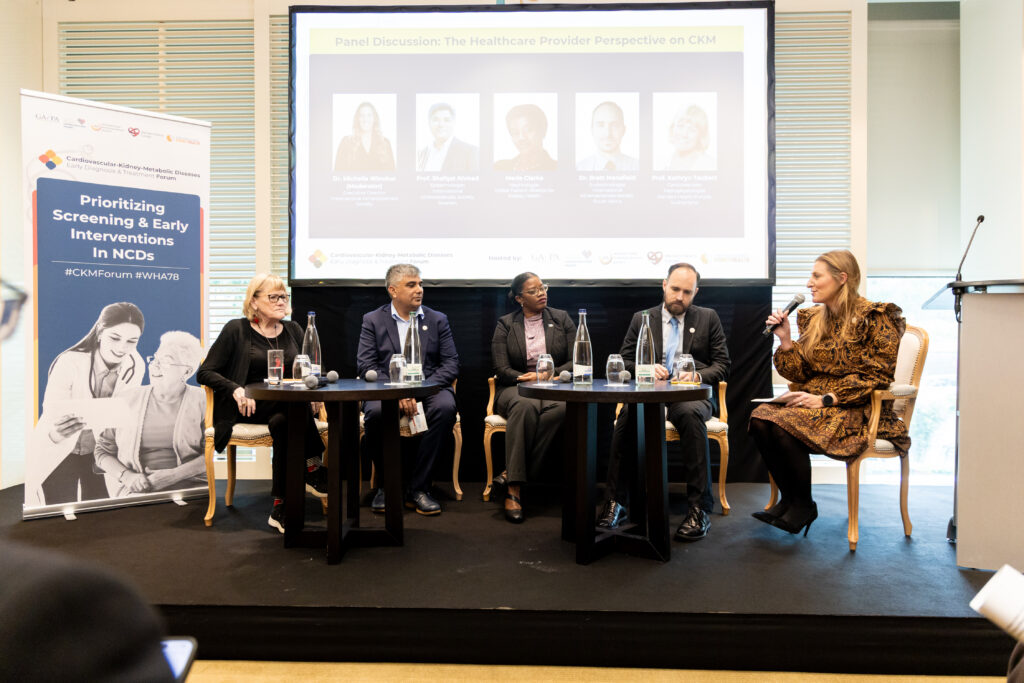“Prevention is best, early intervention is better — but if you wait, it might be too late.” That was the urgent message delivered at the Cardiovascular-Kidney-Metabolic (CKM) Diseases Early Diagnosis and Treatment Forum, held recently in Geneva, Switzerland, alongside the 78th World Health Assembly.

Hosted by the Global Alliance for Patient Access and Mended Hearts Europe, joined with the International Atherosclerosis Society, the Partnership to Advance Cardiovascular Health and the Global Patient Alliance for Kidney Health, the forum brought together policymakers, clinicians and individuals with lived experience of cardiovascular disease, kidney failure and diabetes. Collectively, they issued a clear call: it’s time for governments and healthcare systems to rethink their approach to this cluster of interconnected, often co-occurring conditions — which together account for more than half of the global burden of noncommunicable diseases (NCDs).
A Gathering Storm That Will Soon Overwhelm Healthcare Systems
As populations age, societies cities expand, and lifestyles and occupations become more sedentary, CKM risk factors like obesity, hypertension and high LDL cholesterol are becoming more widespread. This is especially concerning in low- and middle-income countries, where the prevalence of CKM conditions is rising rapidly and healthcare system capacity is already stressed.
Yet despite these trends, healthcare systems around the world are still largely reactive rather than proactive and preventive. In many cases, treatment doesn’t begin until serious and costly complications — like heart attacks, strokes or kidney failure — have already occurred.
Missed Opportunities in Primary Care
Patients and healthcare professionals at the forum shared troubling stories. Even when people are receiving regular primary care for conditions like hypertension or diabetes, they are often never screened for kidney disease. As a result, many only receive a diagnosis when their condition has progressed to the late stages, where options are limited to expensive treatments such as dialysis or organ transplants.
What Needs to Change
Forum participants emphasized the urgent need to:
- Emphasize prevention by raising public awareness about the shared risk factors across CKM conditions.
- Invest in expanding primary care capacity, so patients are diagnosed and treated early, when interventions are more effective and affordable.
- Break down silos between diseases and specialties. These conditions are deeply interconnected: being at risk for one often means being at risk for all. Treating one should include protecting against the others.
A Patient-Centered Path Forward
The forum’s overarching message was clear: healthcare systems need a holistic, patient-centered approach that recognizes how CKM conditions are linked — and how early, coordinated care can prevent disease progression and save lives.
In short: Don’t wait until it’s too late.


